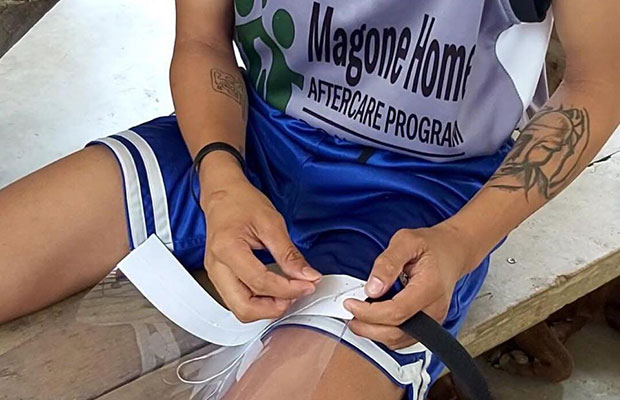
Combating COVID-19: Answering the Call around the World
“Time is of the essence,” Marlou Madrio wrote in a recent Facebook post. “There are only 1,253 commercial ventilators in the Philippines, 153 of which are in Metro Manila. We are 105 million Filipinos with only an 89,000 hospital bed capacity.”
Madrio, an alumnus of Don Bosco Technical College (DBTC) Mandaluyong, joins a globally dispersed collective of past Salesian students who have rallied behind Father Chito Dimaranan’s call to address this critical shortage. As a result, Fr. Chito, who is president of DBTC, announced on his own Facebook page that students at the school’s Innovision Center will soon begin producing ventilators based on a prototype Madrio designed. Working under the supervision of engineering instructor Romel Pasia, these students hope to distribute their ventilators to hospitals throughout the Philippines.
“In this time of COVID-19, when even the most developed—and theoretically prepared—countries have witnessed their health systems buckling under the strain of inadequate equipment, initiatives like these are absolutely crucial,” says Father Gus Baek, director of Salesian Missions. “And I know I can speak for my fellow Salesians when I say I am so proud of the work our students and graduates are doing. Don Bosco himself would expect nothing less.”
“This is our gift to society,” Madrio says. “It’s a project with social dimension.” Currently an IT professional working in Singapore, Madrio enlisted help from fellow Don Bosco alumni in Singapore, the Philippines, the United States, and elsewhere.
Using an open-source blueprint collaboratively developed by the Massachusetts Institute of Technology (MIT) and Boston University Medical School, he designed a variation of the Ambu® bag—the proprietary name for a device known generically as a manual resuscitator, or a bag valve mask, that provides positive pressure ventilation to patients who are not breathing adequately. Inexpensive and easy to produce with robotic assistance, the bags eventually could help address similar shortages around the world.
“This is another striking example of the relevance of a Salesian education,” says Fr. Gus. “Around the world, our vocational and technical training programs are developed with local needs in mind, which help create pathways to long-term employment. Certainly, none of us could have predicted this global pandemic, but it’s validating to witness how our students and graduates are applying their knowledge and skills toward solving one of the most pressing global challenges of our time.”
These efforts, and the calling to help in a meaningful way, aren’t limited to producing ventilators. In Cebu City, formerly delinquent youth enrolled at the Magone Home Aftercare Program are producing face shields for frontline workers. According to Abby Banuag, supervisor of psychological services and team lead coordinator at the Magone Home, the boys are not only learning a useful skill—they’re learning about themselves. One participant, whose frequent interactions with the law made him believe he was only capable of mischief, now envisions a different future. The boys share the joy they have received from helping others, Banuag explains. “It gives them a good feeling when they hear people say that they have helped doctors, nurses and other emergency personnel.”
Nor are such efforts limited to the Philippines. In Aleppo, Syria, a group of 15 volunteers associated with the Don Bosco oratory manufactured 20,000 masks and distributed them to poor children and families at risk around the country. Staff and students at Salesian institutions around the world are producing personal protective equipment (PPE) for medical professionals. Pupils at several schools have designed and are making facial protection devices using 3D printers. At one Salesian Polytechnic University, students are making 120 face shields each day; they also hope to use 3D printing to produce ventilators, laryngoscopes and other medical supplies. And another college has encouraged alumni all over the world to support the fabrication of face shields, masks, and aerosol boxes for patients who need to be intubated. In addition to hospital personnel, face shields have been donated to the fire department, Red Cross and the Ministry of Health in various countries.
“We can do it. Together, let us do it!” says Fr. Chito. Indeed.
Our mission prepares youth for long-term employment and empowers them to pay their education forward. What’s your mission?
Learn more about our work in the Philippines.

